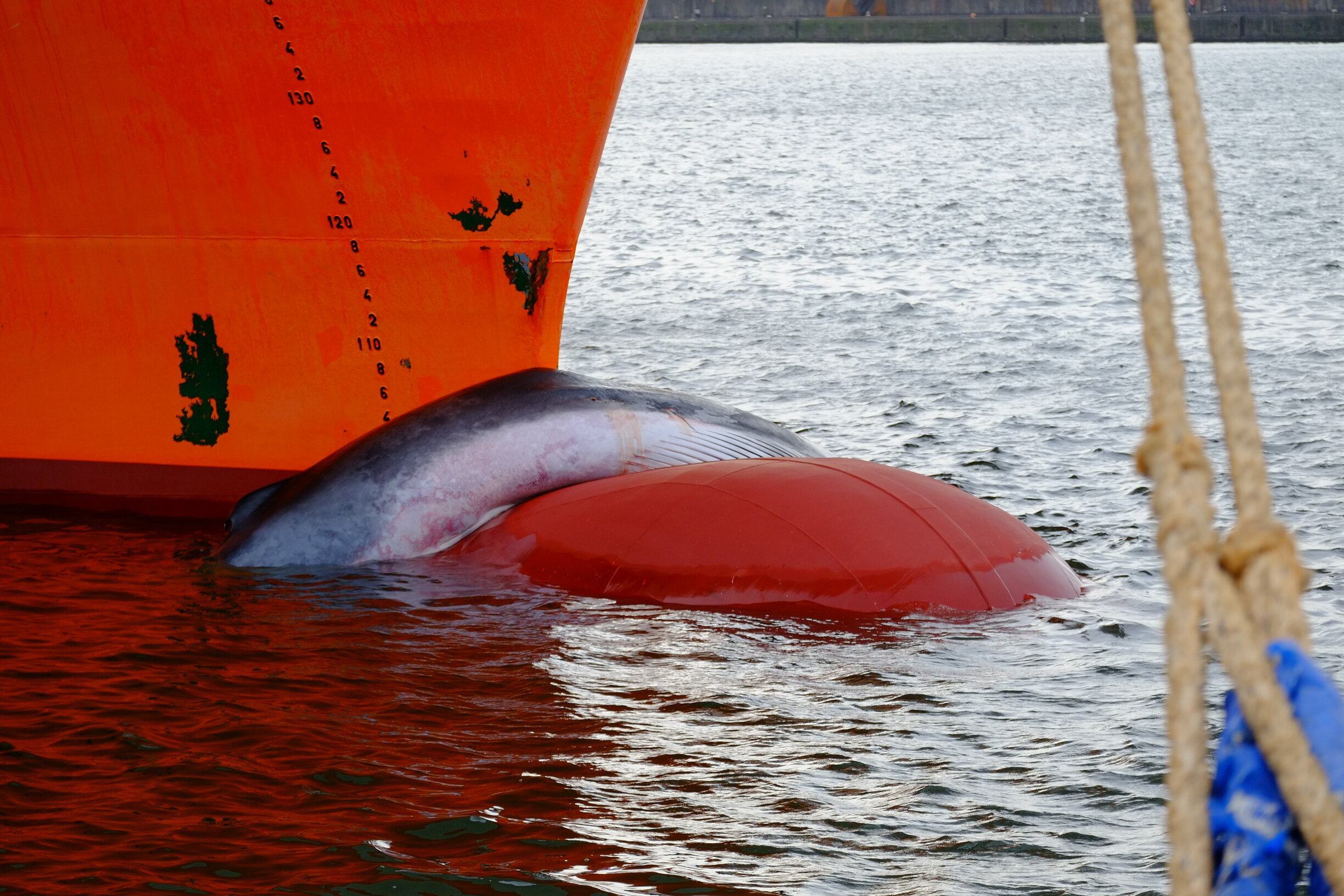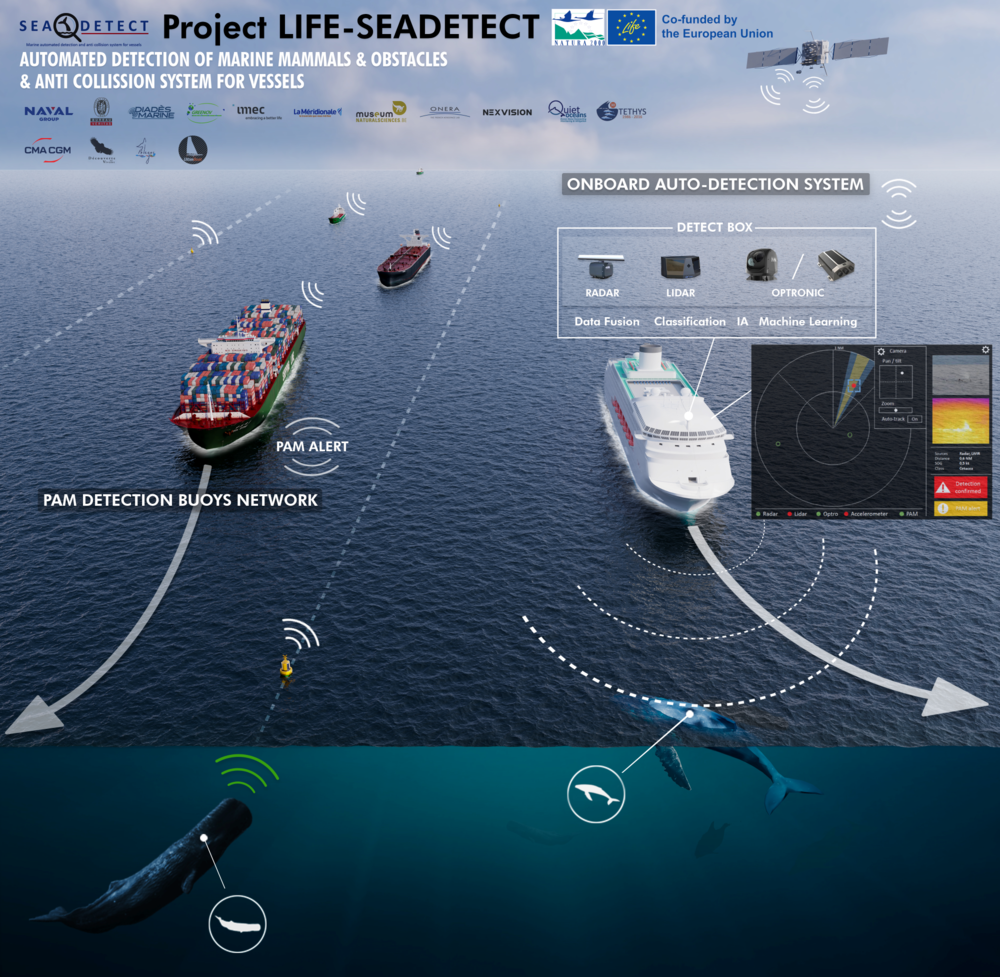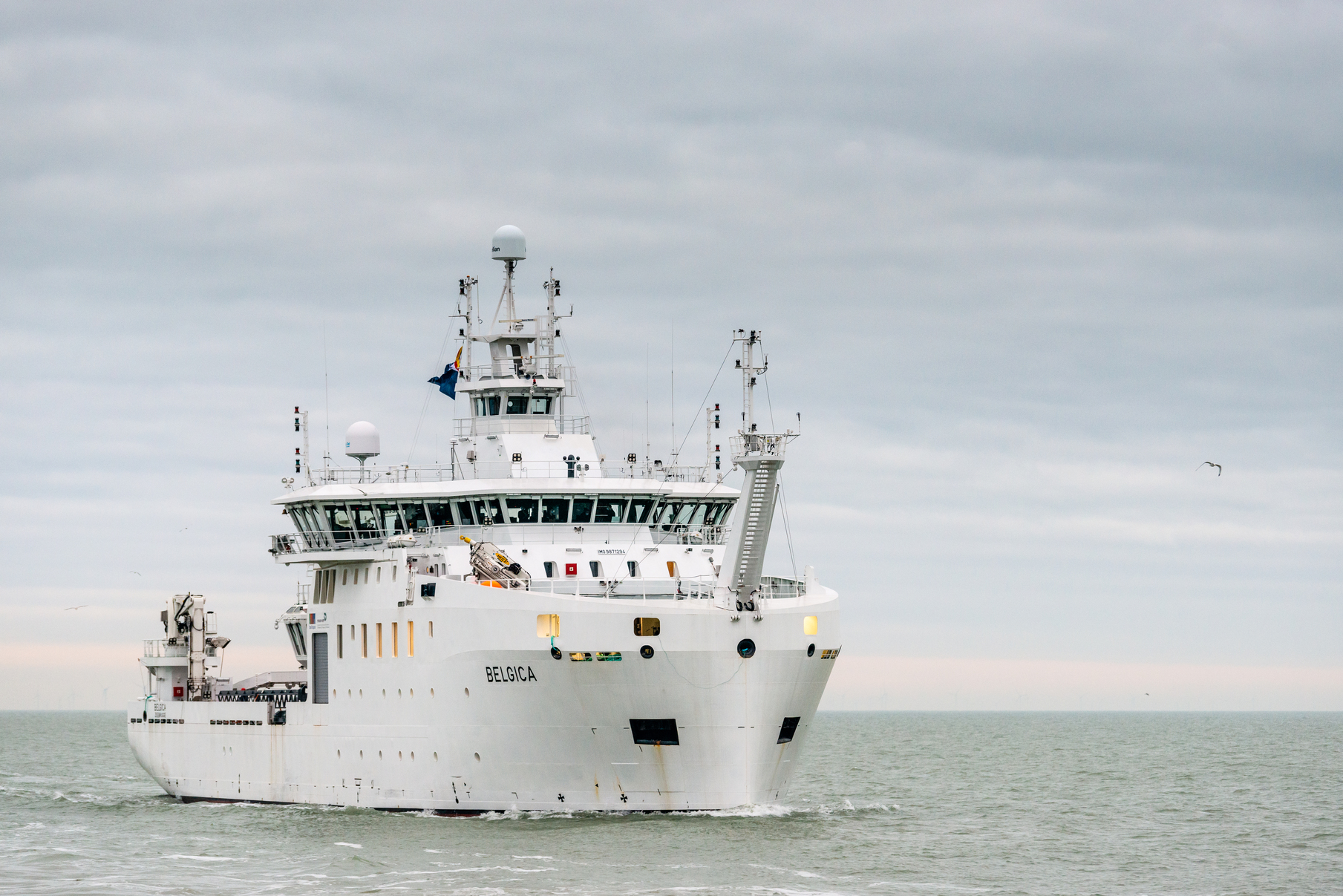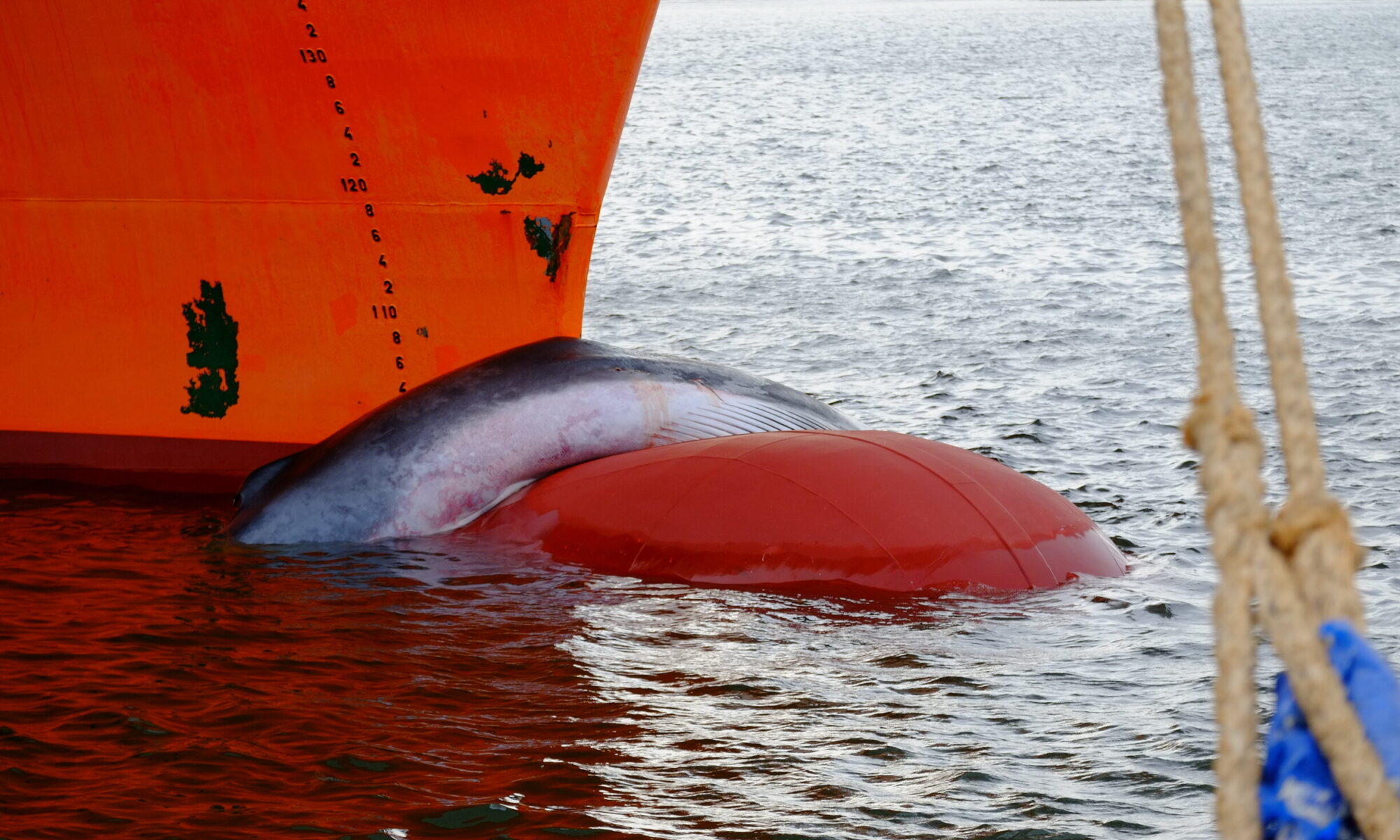As part of the SEADETECT project financed by the EU LIFE programme, the Royal Belgian Institute of Natural Sciences will contribute to the development and validation of an automated detection system of marine mammals to prevent collisions between ships and cetaceans.

Today, global economy is mainly based on maritime traffic which represents 80% of world trade in volume and 70% in value. This intense traffic involves a growing number of ships moving ever faster through the world’s seas and oceans, which markedly increases the risk of collision with cetaceans.
Collisions between vessels and whales often result in the death of the animals. In recent decades, shipping traffic in combination with the increased speed of individual ships has led to a doubling of the number of fatal collisions. Several studies have shown ship strikes to be the leading cause of death of cetaceans in some areas. For instance, ship strikes are the highest form of mortality for fin whales and sperm whales in the Pelagos Sanctuary in the Mediterranean Sea, an area for which France, Monaco and Italy concluded an agreement to protect marine mammals.
In the arctic, climate change is predicted to result in increased exposure of vulnerable cetacean species to collision risk. Worldwide, reductions in collision mortality will benefit whale populations which are still recovering from the effects of historic over-hunting, and continue to suffer from human induced habitat degradation.
Faced with this situation, the SEADETECT project is developing a new solution that should enable vessels to reduce collisions with cetaceans by 80%.
Preventing ship strikes
Collisions are often due to a combination of three factors: the ability to detect, the reaction time of the crew and the time it takes to maneuver the ship, all depending on the size and speed of the ship and the state of the sea. The SEADETECT project will develop three systems to reduce such collisions:
- A system on board ships that will detect unidentified objects, in particular marine mammals, in real time.
- A network of passive acoustic monitoring buoys located in high-risk areas at sea that will determine and triangulate the position of cetaceans in real time.
- Detection data sharing software, fed by the future detections, to inform vessels in the area about the risk of hazards.

RV Belgica as pilot platform
“The automatic detection and anti-collision system will be used in the existing multi-sensory infrastructure of the national oceanographic research vessel RV Belgica and will be validated by scientists of the Royal Belgian Institute of Natural Sciences during the expeditions and monitoring campaigns of the ship”, Bob Rumes of the RBINS Marine Ecology and Management team (MARECO) clarifies.
The automatic detection and anti-collision system will autonomously detect cetaceans but also obstacles or floating objects such as containers to prevent collisions with ships. Thanks to a high-performance data fusion and processing system, this solution will make it possible to detect in real time a 2-metre long object on the surface at a distance of 1km, by day and night, even in complex maritime conditions (strong sea states or bad weather conditions). In addition, the researchers will also investigate the impact of a general application of this detection and anti-collision system on several target species as an alternative to other possible measures.

The SEADETECT project, led by the French Group Naval, will last four years and brings together ten partners from three European countries: Belgium, France and Italy. More information can be found on the project website: https://life-seadetect.eu/.
The LIFE programme is a financial instrument of the European Commission, dedicated to supporting innovative private and public projects in the fields of environment and climate.

